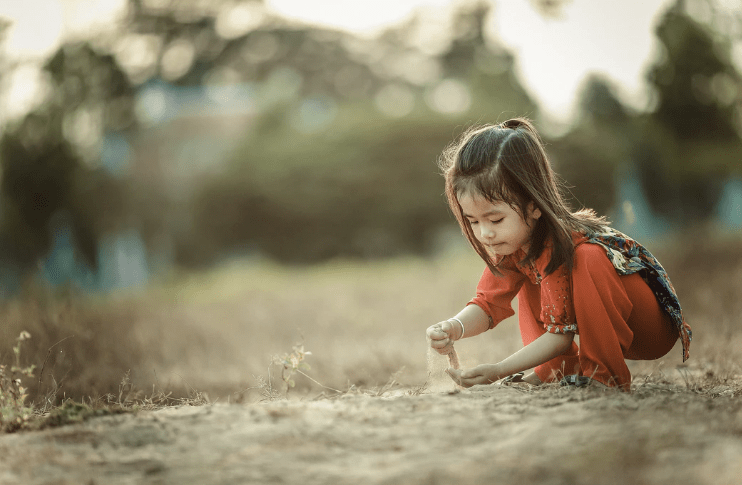When I was a kid, I remember spending the vast majority of my days outside.
I would run through the woods, climb trees, roll around in the grass, play in the mud, crawl through bushes…
I did all of it. And I loved it.
I have very fond memories of those days. It was a simpler time. But I’ve also always believed that these experiences contributed to helping me later-on in life as well.
I’ve always felt like I ‘developed’ a lot while playing outside.
But I’ve noticed that a lot of kids aren’t living this way anymore.
A lot of kids are sitting inside, in the air-conditioning, playing on their tablets.
Hey, I get it.
Tablets and games are fun.
Watching videos is fun.
But here’s the question.
Is it possible that kids are suffering from a serious lack of outdoor creative playtime?
According to a scientist and inventor named Temple Grandin, this absolutely may be the case.
Temple Grandon Believes That Getting Kids Outside Helps Them To Learn
In her book The Outdoor Scientist: The Wonder of Observing the Natural World, Grandin makes a case for getting outside, exploring the world around us, asking questions, and trying to make greater sense of what we see.
Ironically enough, if you’re thinking that this sounds a lot like outdoor children’s playtime… you’d be correct.
According to a recent interview on CNN, Grandin believes that all of her time playing outside as a kid amounted to a solid, positive foundation for her life in the sciences.
She’s currently an animal behavior expert and a professor at Colorado State University. She’s published over 60 scientific papers, and was featured on the 2010 Time Magazine’s list of the world’s most influential people.
And now, she’s making a huge push to try to get people to understand how vital it is for kids to play outside.
“If you are fascinated by clouds or the spots on a ladybug’s back; if you like to split open rocks and see what’s inside, then you’re already an outdoor scientist,” she wrote in the interview.
The Evidence For The Fact That Children Playing Outside Is A Positive Thing
According to studies, playing in nature has a multitude of powerful positive effects on children.
According to a review article, titled: Do Experiences With Nature Promote Learning? Converging Evidence of a Cause-and-Effect Relationship, nature helps to promote learning in children in many different ways.
- It boosts the ability to learn
- It has rejuvenating effects on attention
- It relieves stress
- It boosts self-discipline
- It promotes motivation, enjoyment, and encouragement
- Time outdoors is tied to higher levels of physical activity and fitness
- It provides a more ‘supportive context’ for learning
- It provides a calmer, quieter, safer context for learning
- It fosters warmer, more cooperative relationships
- It may promote self-directed, creative play
- It may lead to greater autonomy
As it turns out, there are many reasons to get outside and experience the joys of nature.
And a better learning experience is one of them.
What’s the takeaway?
It may be time to put the tablets away, and engage in some fun nature-time together with your children.
They’re bound to enjoy it… and you just may enjoy it as well.
In Conclusion
Hopefully this post has helped you to understand how nature can contribute to a child’s ability to learn.
All that’s left now is to get outside and give it a try.
Go find some bugs, crawl through the weeds, run through the woods, or explore a hilltop.
There’s a big world out there to see!












